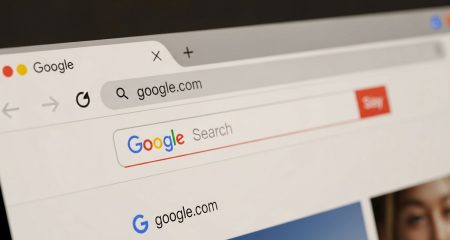 The Association of Independent Publishers (AIP) and Google have announced the establishment of a Digital News Transformation (DNT) Fund to “support the sustainability and digital transformation of small, local and independent news publishers in South Africa through targeted project-based funding”.
The Association of Independent Publishers (AIP) and Google have announced the establishment of a Digital News Transformation (DNT) Fund to “support the sustainability and digital transformation of small, local and independent news publishers in South Africa through targeted project-based funding”.
The establishment of the DNT Fund comes at a critical moment, as news publishers face market failure, the closure of publications and increasing job losses among journalists. This financial injection serves as much-needed oxygen for a sector already described as being in ICU.
This piece was originally published on Michael Markovitz’s Substack, Media Explorations – read the original article here
Funding is also important for another fundamental reason: NGOs, think-tanks and international organisations have clearly demonstrated that the sustainability of democracy is deeply intertwined with the viability of public interest media. The support for the notion of public interest journalism as a public good is gaining traction globally, with organisations like the International Fund for Public Interest Media playing an increasingly important role. Recently, International Media Support released a detailed study on forms of funding, financing and investment for public interest media.
Financial support for public interest journalism should be welcomed, provided it is guided by clear and common-sense criteria, as persuasively outlined in a 2023 policy paper for the Global Forum for Media Development.
AIP executive director Kate Skinner and AIP’s partners should be praised for working tirelessly behind the scenes for over a year to ensure that the governance of the DNT Fund and the distribution of grants adhere to key principles. These principles were strongly supported by the South African National Editors’ Forum (Sanef), the Press Council and other stakeholders. Google also deserves recognition for agreeing that membership of the self-regulatory Press Council should be a condition for receiving funding grants.
Critics may highlight that the DNT Fund represents only a minuscule fraction of Google parent Alphabet’s reported revenues of US$307-billion in 2023, of which 76% came from advertising. However, comparing these funds to Google’s vast revenues is not exactly an appropriate reference point, given that the combined GDP of many nation states is similarly dwarfed by Google’s annual income.
Relief
In the South African context, Google’s commitment of R114-million over three years (R38-million/year) represents a significant and important starting point. According to AIP and Google, the DNT Fund “will provide project-based funding to help small, local and independent news publishers develop and strengthen their digital operations, improve their audience reach and engagement, and enhance the sustainability of their journalism.”
For further details on governance, eligibility, and comments from Google, AIP and others – including information on various grant levels – please refer to the launch media statement and accompanying background materials here.
Set to commence in March 2025, the DNT Fund will undoubtedly offer some relief to struggling news publishers. However, this intervention, while necessary, is not sufficient to address the platform-related, systemic market failures that have eroded the viability of news media and, by extension, South Africa’s democratic health.

The timing of the fund’s launch coincides with anticipation of the Competition Commission’s provisional report on the Media and Digital Platforms Market Inquiry. Whether the commission’s regulatory remedies will impose stricter obligations on digital platforms remains to be seen. However, a stronger response from the commission is crucial. Beyond the establishment of journalism funds, there are deeper structural issues that require urgent attention, including:
- Alleged anticompetitive practices by platforms;
- The vast power asymmetries between platforms and publishers; and
- The unregulated use of AI crawlers that extract value from expensively produced content without compensating news publishers.
In addition, Sanef has asked the commission to take into account:
- The provision of access to credible news as a public good should be dealt with as a basic human rights issue, not only as a commercial competition issue;
- Fair compensation for news in the public interest used on tech platforms, based on the value that they derive from this content;
- Prioritisation of credible news (those subscribing to an independent self-regulatory body and an ethical code) by tech platforms and actively using such content as an antidote for misinformation and disinformation; and
- Transparency and sharing of data and algorithms related to news content and related advertising on the tech platforms, as well as data that publishers can use to promote and monetise their content.
The commission’s provisional report, rescheduled for release on 29 November, has faced additional delays and is now expected before year-end.
Disclosure: The Gibs Media Leadership Think Tank, in partnership with Sanef, the Press Council and AIP, has made joint submissions to the Competition Commission’s media and digital platforms inquiry. This engagement underscores the think-tank’s commitment to the sustainability and integrity of South Africa’s news and information ecosystem.
- The author, Michael Markovitz, is head of the Gibs Media Leadership Think Tank
- Read more contributions by Markovitz on TechCentral
Don’t miss:
Malatsi was right to scrap the SABC Bill – now urgency is needed




